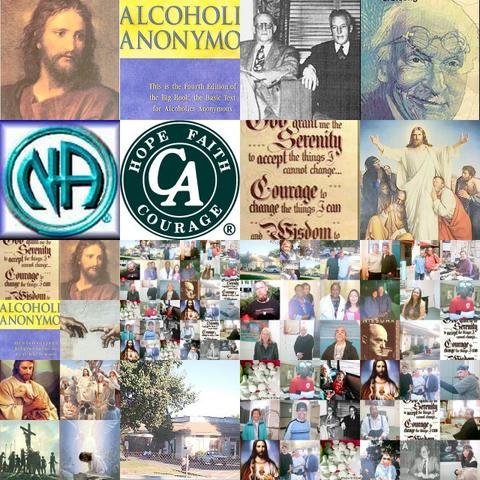
http://www.hbo.com/addiction/understanding_addiction/13_craving.html
http://www.hbo.com/addiction/aftercare/41_avoiding_relapse.html
Avoiding RelapseIn some ways, the hardest part of establishing and maintaining long-term recovery comes when the initial, intensive part of treatment has been completed. To avoid relapse, most recovering people need to be in the warm embrace of loved ones - whether their close, biological family or the new "family" of other recovered people that they can turn to when they feel in danger of relapse. One study identified the five factors that most often contribute to relapse:
These factors are not so different from the variables that affect relapse when dealing with other chronic disorders, such as diabetes:
Among other things, addicted people must learn how to avoid contact with the triggers that may set in motion their brain's demanding cry for drugs or alcohol. And when those triggers are unavoidable, people must develop the skills that will prevent the craving from taking over. Learning these skills must be a core element of any treatment program; maintaining them should be part of an aftercare program or long-term recovery plan. "Aftercare is just that," says Don Perks, who helps fellow members of Steamfitters Local 635 in New York City. "It's a continuing care that you really need to be involved in if you're gonna wanna survive this. If you just leave 30 days' treatment and you don't go to meetings and you don't get involved with a sponsor and a group and a commitment, you're going back in no time at all. You can't resist the temptation." "I cannot emphasize enough the role of the aftercare contract and the aftercare program," says Scott Basinger, who heads a confidential addiction assistance program for employees at Baylor College of Medicine in Houston. "It's been the key to success." Joe Powell leads a recovery center in Dallas, where participants can gather for friendship, mutual aid, job training and other tangible assistance that can help recovery people get on their feet, start a new life and remain committed to their recovery plan. Although peer support is an essential part of the recovery center, the organization focuses on solution-oriented endeavors, and does not limit itself to the specific issues raised in the addiction-focused dialogue that comes in a 12-step program. Powell says that in this case, aftercare is "about the solution, not about the problem." "Most people think we're replacing AA. We're not replacing 12-step," he says. "People in long-term recovery are in a different stage; they don't have the same needs. We put together a recovery commitment plan for clients - our goal is to get them to where they are preparing for a lifetime of recovery." Services such as recovery centers, peer coaching and mentoring and educational and skill-training services play an important role in helping an addicted person rebuild a life, avoid relapse and sustain long-term recovery. A small federal program, the Recovery Community Services Program (RCSP), funds community- and faith-based programs that provide these services, linking individuals with housing, jobs, and/or education; and hosting alcohol- and other drug-free social activities. To learn about RCSP grant projects, visit http://rcsp.samhsa.gov/. |
<>+<>+<>+<>+<>+<>+<>+<>+<>+<>+<>+<>
http://casa-12steps.blogspot.com
http://groups.yahoo.com/group/CASA-12-Steps-Program/

No comments:
Post a Comment
Please give feedback with respect!